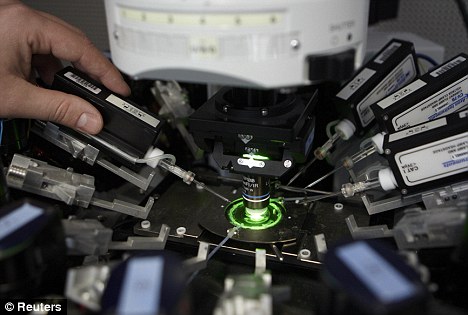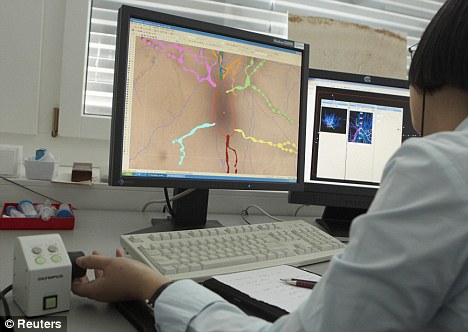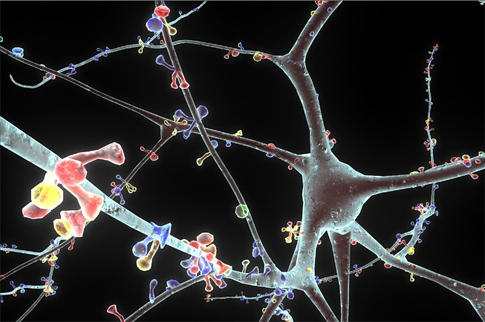Via dailymail.co.uk

A team of scientists has assembled in Switzerland and Germany to pursue a unique goal – the building of a computer model of a human brain.
Called the Human Brain Project – but perhaps inevitably dubbed ‘Team Frankenstein’ in the media – it is in discussion with the EU for a ?1billion grant.
Scientists claim success may lead to cures for various diseases like Parkinson’s.It could also lead to intelligent robots and supercomputers which would dwarf those currently in existence.
Henry Markram, a neuroscientist at the École Polytechnique Fédérale in Lausanne, Switzerland, has assembled a team of nine top European scientists for the research effort.?This is one of the three grand challenges for humanity.
We need to understand earth, space and the brain. We need to understand what makes us human.? Markram told Germany’s Spiegel magazine.
The scientists and researchers working with the Human Brain Project believe that if they secure the funding, they will be able to replicate mankind’s most vital organ in 12 years. The applications for it if successful are enormous; drug companies for instance would be able to dramatically shorten testing times by bypassing humans to test new medicaments on the computer model.

Supercomputers at the Jülich Research Center near Cologne are earmarked to play a vital role in the research which Makram says will involve ?a tsunami of data.?
Jülich neuroscientist Katrin Amunts has begun work on a detailed atlas of the brain which involved slicing one into 8,000 parts which were then digitalized with a scanner.
Makram added: ?It is not impossible to build a human brain. We can do it in just over 10 years. ?This will, when successful, help two billion people annually who suffer from some type of brain impairment.
?The project has already created an artificial neocortical column which is unique to mammals. We have many of these columns to cope with complex cognitive functions including parenthood and social interactions.
It was digitally constructed using a software model of tens of thousands of neurons.




